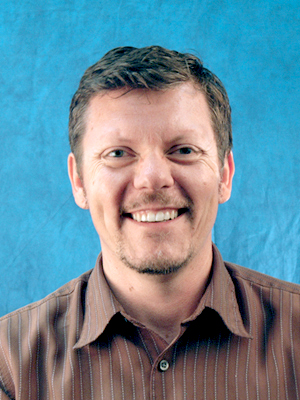UIC chemistry, learning sciences scholar named Humboldt fellow
Mike Stieff, associate professor of chemistry and learning sciences at the University of Illinois at Chicago, has been awarded an Alexander von Humboldt Foundation Research Fellowship for the spring semester.
The competitive fellowships are granted to experienced foreign scientists and scholars from around the world for an extended research period in Germany.
Stieff’s research in UIC’s Learning Sciences Research Institute examines how science students use mental imagery to solve spatially complex problems and seeks to understand the relationship between a student’s spatial ability and science learning.
In Germany, based at the Leibniz-Institut für Wissensmedien (IWM) in Tuebingen, he will examine sketching as a means to promote learning from digital media and explore the underlying mechanisms by which sketching improves learning.
“While it is known that sketching can improve learning from science texts, it is not known whether these benefits transfer to learning from digital media,” Stieff said. “This work will not only establish the differential effect of learning from dynamic visualizations with and without component sketching activities, it will also provide design principles for instructional activities that leverage sketching to improve learning from dynamic visualizations.”
Stieff’s other research includes a National Science Foundation-supported project exploring how physical models help and hinder students in organic chemistry. He also directs The Connected Chemistry Curriculum project, which involves the development and evaluation of molecular visualizations for teaching high schools.
The Alexander von Humboldt Foundation, a nonprofit organization established by the Federal Republic of Germany for the promotion of international research cooperation, annually selects approximately 500 internationally renowned scientists and scholars for its research fellowships. The foundation’s network of over 27,600 alumni in 140 countries includes 52 Nobel Prize winners.

